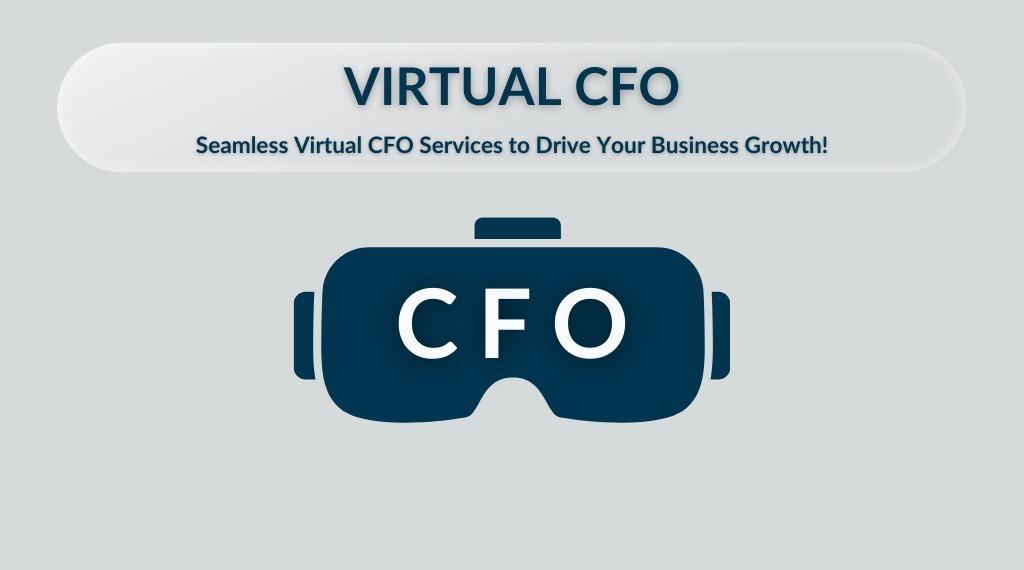The Rise of the Remote CFO: A New Era for Financial Leadership

In today’s digital, fast-moving startup ecosystem, financial leadership is no longer confined to the boardroom. The role of the Chief Financial Officer (CFO) has evolved — and for many startups, the future lies in remote CFO services. These flexible, scalable financial experts are changing the way startups manage their finances, raise capital, and achieve sustainable growth.
Below, we explore how remote CFOs are influencing startup finance and why they are becoming an indispensable asset for modern growth companies.
What Is a Remote CFO?
A remote CFO is a highly experienced finance professional who provides CFO-level services virtually. Startups and small to mid-sized businesses hire them on a part-time, contract, or fractional basis to access expert financial guidance without the high costs of a full-time executive.
Key Responsibilities of a Remote CFO
- Strategic financial planning
- Budgeting and forecasting
- Fundraising support and investor relations
- Cash flow and risk management
- Financial reporting and KPI tracking
The Changing Financial Needs of Startups
Startups go through various stages — from ideation and validation to scaling and funding. Each phase brings unique financial challenges, and the ability to adapt financial strategies is critical to survival.
The Early-Stage Gap
In early stages, startups often operate without financial leadership. Founders may manage budgets themselves or rely on bookkeepers. This setup can work temporarily but lacks the strategic vision needed to raise funds, manage cash flow efficiently, or scale operations effectively.
The Funding Crunch
Investors demand robust financial models, clear unit economics, and confident forecasting. Without a CFO — even a remote one — startups may struggle to meet these expectations, potentially missing out on critical funding.
How Remote CFOs Are Reshaping Startup Finance
Remote CFOs are addressing these challenges head-on, offering startups the strategic insight they need without the full-time cost burden.
1. Cost-Effective Access to High-Level Expertise
A traditional CFO salary often exceeds £100,000/year — an unrealistic figure for early-stage startups. Remote CFOs offer a fractional model, giving startups access to top-tier expertise at a fraction of the cost.
A London-based SaaS startup hired a remote CFO at 10 hours/month, paying £2,000/month instead of a full-time salary. The CFO helped raise a successful seed round within 6 months.
2. Improved Financial Planning & Forecasting
Remote CFOs bring discipline and structure to startup finances. They design dynamic financial models that align with business goals, helping founders plan growth with clarity.
Unlike static budgets, remote CFOs use rolling forecasts that adjust to real-time data, making them ideal for unpredictable startup environments.
3. Fundraising Support That Builds Credibility
Investors love numbers — but they need to trust them. A remote CFO ensures that financials presented in a pitch deck are accurate, defensible, and aligned with investor expectations.
During funding rounds, due diligence can stall deals if financials aren’t in order. Remote CFOs handle financial audits, cap tables, and investor Q&A — reducing risk and delay.
4. Real-Time Strategic Guidance for Founders
H4: From Gut Feelings to Data-Driven Decisions
Founders often rely on intuition. A remote CFO introduces financial metrics and KPIs that turn instinct into evidence. This allows founders to make confident decisions based on real-time data.
Cash is king for startups. Remote CFOs implement tools and dashboards that give a clear picture of inflows, outflows, and runway — helping prevent cash crises before they happen.
5. Scalability Without Growing Pains
As the startup grows, the remote CFO’s role can evolve — from strategic advisor to a more hands-on leader. This scalable model means the company only pays for what it needs, when it needs it.
Many remote CFOs have international experience and can guide startups through overseas expansion, currency risk, and cross-border compliance.
The Future: CFOs as Growth Partners
The remote CFO is no longer just a bookkeeper or an outsourced accountant. They are strategic partners, integral to a startup's growth journey. By blending financial strategy, technology, and startup agility, remote CFOs are reshaping what it means to “do finance” in the digital age.
Final Thoughts
The rise of remote CFO services for growth companies is more than a cost-saving trend — it’s a response to the way modern startups operate: lean, agile, and digital-first. Whether preparing for a funding round, entering a new market, or simply improving financial control, a remote CFO brings the right mix of strategic insight and operational excellence.
Startups that embrace this model aren’t just surviving — they’re scaling faster, smarter, and with stronger financial foundations.






